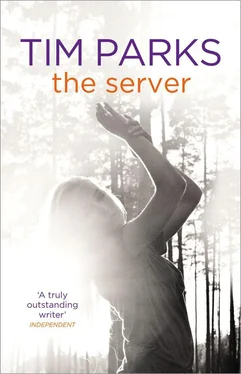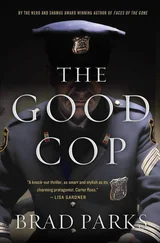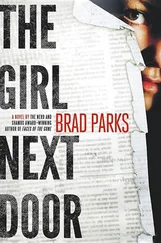I’VE BEEN TO the bathroom. First another long spell of jhāna , wandering through the rooms of my body, opening doors, climbing stairs, standing at windows where it is always sunset, then suddenly I was present again, I was back, thinking. That’s how jhāna ends. The stillness splits into words again, separate words, everything turns sharp and distinct and I’m thinking again and time is motoring on. I suppose enlightenment must be bringing back the peace of jhāna into this nowness, bringing wordless, timeless wholeness into this ordinary stuff of deciding and doing. I don’t see how that’s possible. I can’t imagine it. But I would never have imagined jhāna if I hadn’t learned the Dasgupta technique. I would never have imagined the stillness and the currents in the stillness. Mi Nu must know. What does enlightenment feel like, Mi Nu? I could ask her. That would be a good question.
I suppose I was half hoping that when the course managers realized I’d been sitting there since four a.m., all day without a break, without breakfast, without lunch, they would tell Mrs Harper and Mi Nu and someone would come and touch my shoulder and remind me that fasting is forbidden at the Dasgupta Institute. I would be forced to get up and eat. I didn’t know if I wanted this to happen or if I was determined instead to sit on till enlightenment, or till doomsday, or at least until some serious change, something that would finally get me out of this trap I’ve fallen into — but that’s stuff the diarist said — no, I didn’t know what I wanted, but I half hoped that Livia or Mrs Harper would come over and force me to eat. I would enjoy eating, even if I’d be angry with myself afterwards for not sitting till I dropped.
They didn’t. No one came. No one touched my shoulder. Maybe it’s because Mrs Harper won’t have anything more to do with me now. She’s scared because I attract her so much. ‘Your body is awesome, Beth,’ Jonathan said. ‘You terrify me.’ But suddenly I was on my feet anyway. Without deciding anything, barely out of trance, I was on my feet. The hall was full, full of sighs and a sort of soft, pulsing quiet. Things get much quieter on the last days of a retreat. People go in deeper. They’ve learned how to sit and be still. Kristin was to my left, kneeling, arms loose at her sides. Marsha was slumped forward. Then Meredith, Stephanie. Everybody was in his or her place. I didn’t turn to look at the men’s side. Surprisingly, my legs were fine, my feet were fine. I didn’t have pins and needles, even the bathroom didn’t feel urgent.
Outside the clouds were breaking up. The sunlight was dazzling on the wet path. A fresh breeze touched me everywhere. It moved under my clothes like gentle hands. Then I was filled with sounds. There was a bird chirping, rustling leaves. The bird was inside me. The leaves rustled in my fingers. I picked my way between the puddles to the loos, but it didn’t feel like that: it felt as though the path shifted as it came to meet me; it was snaking this way and that to make sure Beth didn’t get wet. Sweet path. And the handle drew my hand up towards it and opened the door to pull me in and it was only when I was actually sitting on the seat that I realized I had hardly bled at all. No blood. Weird. When had a period of mine ever been so short? Unless the meditation had put it on hold and now the blood would flow again.
I peed, or the pee came. Didn’t shit. I shivered and wondered what to do. I was cold now. Still, I was very clear in my mind, very calm. You have sat eleven hours, Beth, and nothing has happened. Nothing major. Eleven hours. So what to do? Go back to the meditation hall, push on. Go to the limit. It seemed the only way. Either I reached some giant change in my head, or I left the Dasgupta and plunged back into life. One way or the other I must make something happen.
I stood in the entrance, looking across to the lines where people hang their washing. I still hadn’t taken down my panties. Five pairs. They’d be soaked again with the rain. The clouds were coming fast across the hills and the sun had gone again. GH wouldn’t be able to break free of his wife, I thought. Something about the way he wrote told me he wouldn’t. He would be lost without that unhappiness. Your story becomes you. There’s nothing else. That’s what happens if you go on for years with something like that. My parents were their marriage, their shouting match. Or the guys who just keep on trying to make it in music, who can’t decide to give up. If he actually makes a decision, he’ll die, I thought. Or he won’t be the same person. Jonathan said he’d left his wife, but he hadn’t really. ‘We see each other once a week for dinner,’ he said. I bet there was more to it. I bet she came regularly to his flat to sit among his things when he wasn’t around. That’s why she came the day I was there, nude in bed. To sit with his smell, his aura. ‘I’d like to fight for you, Beth,’ Jonathan said one day. ‘I’d love to be the man who fights for his girl. But I’m not.’ And what he must have meant was, even if he had left his wife, because they lived apart, at some level they were still married, still attached, still caring for each other. As soon as he had stopped living with her, he told me one day, he had stopped hating her. He didn’t want to hurt her, he said, any more than was necessary. They had dinner together once a week. He didn’t look forward to it, he said. But it wasn’t like when they were married. He didn’t mind. I bet they went on holiday together too. I bet she was in New York with him when I was sending those texts.
Maybe she read them.
‘So there’s no hope at all for me,’ I asked. ‘Even loving you the way I do?’
‘None, Beth. None in that department, I mean.’ He laughed.
‘So why do I stay with you?’
‘Because you’re crazy, Beth. Because you’re afraid of your life with Carl. You’re trying to break away from Carl. But you can’t quite decide.’
‘OK, so let’s do something really crazy,’ I yelled. ‘Really fucking crazy.’
I grabbed him and kept him inside me when he came.
‘That was mad, Beth,’ he whispered.
For me, not for him.
I stood on the step outside the washroom and looked across to the dormitories and the ragged flowerbeds. They wouldn’t keep me much longer at the Dasgupta. I had to make something happen. If I’d had a bit more success with the music, it would be easier. I could go back to that, to being a musician, a singer. If we’d made a bit more money. If we’d had just a smell of real business. What was driving me mad with Carl was what would become of us if we weren’t successful. Two nobodies. ‘Ambition is a hard master,’ Jonathan said one evening. Artists were destroyed by ambition, he said, even more than businessmen and politicians. ‘Very few artists are a match for their own aspirations.’
Maybe that’s what we let go of, I thought now, when we are drawn into jhāna . We let go of our ambitions, of all the things that eat us up. But they are waiting for us again when we come out. Our monsters are always lying in wait. We can’t escape them. Not that they lurk or hide. They’re standing there, whips at the ready. As soon as the stillness breaks up into words, your ambitions are there telling stories of success and failure. Mainly failure. Get on with it, Beth, get on with it, or you’ll die a nobody. Show them you have the courage, Beth, show them you have what it takes. When I leave the Dasgupta I’ll have to be successful. I’ll have to have a hit. Otherwise who am I? On the other hand, I can’t arrange the songs without Carl. Carl was so good at arrangements, even though he only went through the motions of trying for the big time. Carl was going to do just enough to say he’d tried, he’d had a go, he’d used the metronome, then as soon as was decent he’d give up and marry me and take a job in Marriot’s. He even went fishing with Dad. In Oxfordshire somewhere. ‘I like fishing,’ he said. ‘I get good tunes when I’m fishing. I get good riffs, waiting for the fish.’ Dad had wanted a son to take over the company and no son came. My sisters married nerds. Beth was bait for the future MD.
Читать дальше












